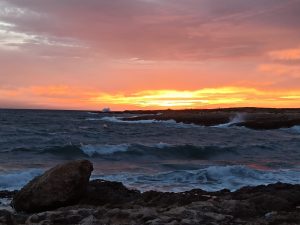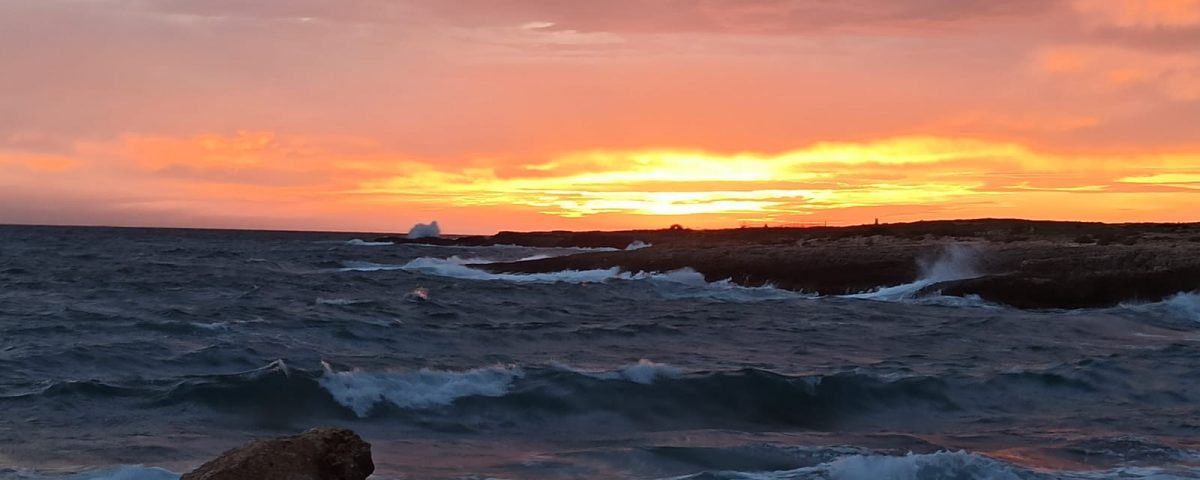- Mediterranean Hope - Federazione delle chiese evangeliche in Italia
- mh@fcei.it
How serious is it?

The “Lo sguardo dalle frontiere” (A Look from the Border) editorial is written by operators of Mediterranean Hope (MH), the migrant project of the Federation of Protestant Churches in Italy (FCEI). This week’s “Look” comes from Marta Barabino, a student and researcher in medical anthropology.
Lampedusa (NEV), January 13 th 2021 – Lampedusa is a place that pushes one to relativize many aspects of one own’s life. Perception of time and space dilates and shrinks depending on the moment. The echo of a happening can be padded or amplified, depending on its circulation at national level, health and urgencies can at times be distorted, narrowed, reevaluated. As in all other places Covid-19 emphasized this aspect; protocols, contact, access and entry chances to healthcare places and resources on the island were remodeled.
Access to healthcare during migration is a subject matter integrated in a broader frame, per se an already complex one from a sanitary point of view: the pandemy still dictates the rules in any social, private and working environment. Even there where there initially seemed to be more “wiggle room”. In the specific case of migrants docking in Lampedusa, different aspects can be observed. These aspects push to question ourselves on the virus’s repercussions on our lives, on the way we conceive and see things. At the molo Favaloro (the dock of the Italian Guardia di Finanza), the protocol foresees the use of masks and further protection devices for all the personnel and the people that just docked. Temperature control and a check for any illness are also part of the protocol, any specific clinical case as pregnancy, contagious diseases, skin wounds, fractures and burns. In case of a medical emergency, hence the need for an urgent transportation to the health center, the protocol foresees a quick Covid-19 test to be
done at the dock. Only after the person can be transported by the doctors to the health center on the ambulance.
The need for this test to be done however, calls for more heath care resources and personnel, slowing down the procedures at the dock, sometimes adding weight to the already fragile lampedusan heath system.
The result of this new setting, calling for the mobilization of diverse institutions and additional resources is often a relativization of the concepts of urgency and emergency, but also a relativization of the seriousness of a wound or of the physical shape of a patient. At the dock we often witnessed a broken arm, lower limbs burns, even the inability to walk autonomously not being considered a health emergency needing immediate assistance.
If energy and attention concentrate on the risk of infection and the respect of prevention rules, then the vast and varied sphere of migration pathologies – that remain consistent – are neglected or at least relativized. The only priority is the actual emergency: the virus. It is then possible to question the terminology and symbolic systems that hide behind concepts we too often use without questioning: the doctors present at the dock are required for the so called “landings emergency”. If we admit there is a landings emergency, why can we not talk about and take immediate action for the “emergencies of people landing”? Covid-19 seems to have weakened the medias hubbub on migration and landings on the island of Lampedusa, downsizing the resonance of the news and waning numbers and statistics. A similar effect was produced on the definition of diverse health aspects that risk being neglected or postponed because not considered as serious and undeniable. At present we don’t only have to talk about treatment access in the migratory context, but also discuss about material, logistic and personnel resources. Here we see an overlapping of criticalities that complicate the possibilities of the medical staff in assisting with immediacy and the
necessary resources the patient, eventually worsening its situation. All this is said based on facts and the evident physical suffering witnessed in the last months in Lampedusa during the landings we followed in person.
About the social suffering and the psychical repercussions of the migratory experience, the road will probably be far longer and windy.





